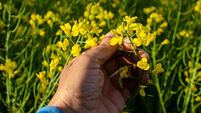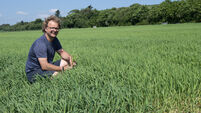Scientists to launch mobile app to detect potato blight at early stages

Traditionally, disease detection in crops has relied on manual inspection, a method that is time-consuming, expensive, and often subjective. Picture: Wolfgang Ehrecke / Pixabay
Potato blight, one of the world’s most devastating crop diseases, could soon be detected using mobile phones, thanks to a new app being developed by Welsh scientists.
Spearheaded by a research team at Aberystwyth University, the DeepDetect project aims to develop a mobile phone app that uses artificial intelligence to provide early warnings of diseases in potatoes.













